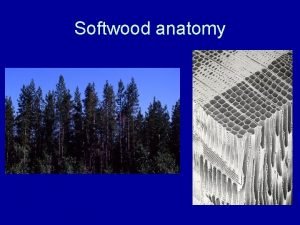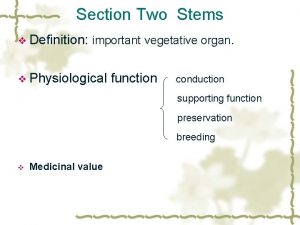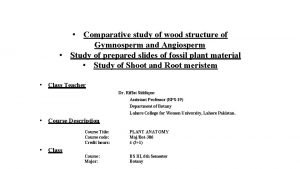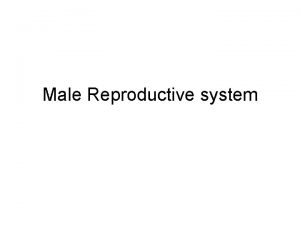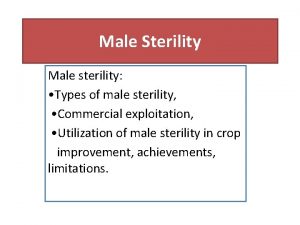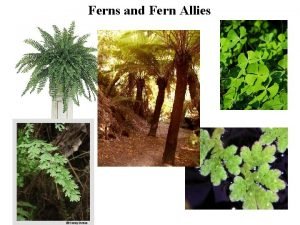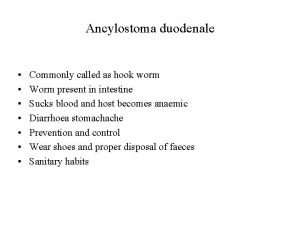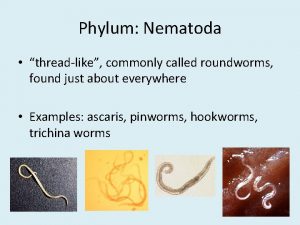Dryopteris Dryopteris commonly called wood fern male fern

















- Slides: 17

Dryopteris



Dryopteris commonly called wood fern, male fern, or buckler fern, is a genus of about 250 species of ferns with distribution in the temperate Northern Hemisphere, with the highest species diversity in eastern Asia. Many of the species have stout, slowly creeping rootstocks that form a crown, with a vase-like ring of fronds. The sori are round, with a peltate indusium. The stipes have prominent scales.






Dryopteris are ferns consisting of a horizontal root growing in soil called a rhizome and leaves called fronds projecting upward. Each frond is roughly triangular, with branches along either side of a stem with many small oblong leaflets. Frond sprouts are called "fiddleheads" for their resemblance to the head of a violin.

Spore Production The Drypoteris fern life cycle begins with a spore. On the underside of each frond are tiny, dark spots called sori that contain growths called sporangia that produce and release spores.

Gametophyte Each spore will eventually fall to the ground. Those that germinate will form a gametophyte. The gametophyte will then grow, forming a leaf-like structure that attaches to the ground using root-like rhizoids. Sex Organs When the gametophyte matures it produces sex organs. The male organs are called antheridia and the female, archegonia, both of which develop on the bottom surface of the gametophyte.

Sexual Reproduction The antheridia produce flagellate sperm that will swim through a film of water to the archegonia. The sperm then fertilizes an egg within each archegonium. Zygote The fertilization process will produce a zygote which will then grow from within the gametophyte. Rhizomes will develop beneath the soil and fiddleheads will sprout, shooting up from the rhizome to form a sporophyte.




 Ciclul de dezvoltare la ferigi
Ciclul de dezvoltare la ferigi 3 types of hydroxide relaxers
3 types of hydroxide relaxers The circle graphs are commonly called
The circle graphs are commonly called Sodium hydroxide relaxers are commonly called
Sodium hydroxide relaxers are commonly called Wood sawed wood old tongue twister
Wood sawed wood old tongue twister Longitudinal tracheids
Longitudinal tracheids Wood wood teenager
Wood wood teenager Xylem
Xylem Esharenet
Esharenet Whats a male sheep called
Whats a male sheep called Altered cognition in older adults is commonly attributed to
Altered cognition in older adults is commonly attributed to Most commonly used system
Most commonly used system Collection of web
Collection of web Centralized multinational financial management
Centralized multinational financial management Financial difficulties are commonly caused by overspending
Financial difficulties are commonly caused by overspending Section 17-3 note taking guide answer key
Section 17-3 note taking guide answer key Abused children commonly exhibit
Abused children commonly exhibit The three parts of a pin curl are the
The three parts of a pin curl are the





